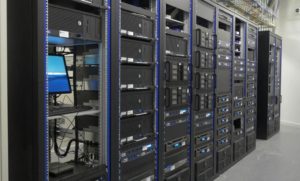Table of Contents
Many different kinds of working environments are suitable for using hard disks. The disk that can be found in the workspace of a secretary is the only object used to keep documents considered to be of greater significance. Another example is a disk in a busy server; data loss from this disk can result in significant losses.
In every circumstance, the need for a hard disc is different, and producers are aware of this fact. As a result, many of the models in their product lines have a well-defined purpose, and this function is frequently stated directly in the name of the drive.
Hard Disks By Purpose
For Video Surveillance
As a rule, video surveillance plays a significant role in security systems. However, if video recordings are not stored or stored for a short time, the effectiveness of video surveillance is significantly reduced. That’s why reliable, high-capacity storage is essential to any such system.

Recording video data has a pronounced specificity:
- Constant load 24/7
- A large amount of data requires appropriate capacity
- Large sequential data arrays are written/read, quick access to different files is rarely needed
- Data is homogeneous, which allows you to optimize the disk controller specifically for video.
Video surveillance disks are often very noisy and do not have high random read speeds. Using them as a desktop PC drive is inexpedient, especially since they are more expensive than “ordinary” ones. Such HDDs reveal their full potential in conjunction with video surveillance systems. Many models use technologies that prevent frame loss and optimize recording from multiple cameras.
For Heavy-Duty Servers

High-performance data centers and database servers require HDDs for maximum speed and reliability. This leads some data centers to switch to SSDs despite their shorter lifespan and significantly higher prices. However, the move to SSDs is not always possible, and hard disk drives are still the primary storage solution for the enterprise segment:
- 24/7 high utilization
- Maximum speed for both reading sequential arrays of data and random access to different files
- Collaborative operation of multiple disks in an array
- High reliability and long service life.
For Gaming PCs
Games are some of the most resource-intensive applications for PCs. Not only do they put maximum strain on the processor and graphics card, but the drive is no exception. Speed is the first thing games need from a drive, which is why most gamers have switched to SSDs a long time ago. Still, even the fastest HDD is vastly inferior to SSDs. The only reason to prefer HDD is if you are on a tight budget.

Gaming HDDs have high read/write speeds but can be noisy and hot. They are not designed to work in an array and may have higher power consumption.
Also, single-performance drives are an inexpensive solution in a performance workstation for 3D modeling, video processing, large-format images, and other resource-intensive tasks.
Conventional For Home Use
Home use implies the most gentle working conditions, so the price of such disks is minimal. But the minimum price does not mean the worst performance. It is possible for universal disks, which do not serve a specific purpose, to have a high capacity and a good speed (up to 18 terabytes). They are versatile enough to be used for business, gaming, and storing data. Disks designed for use in the home continue to be the most suitable choice where there are no strict requirements for speed or dependability.
Author Profile

Latest entries
 BusinessFebruary 17, 2026Why Online Shops Need a Fulfilment Centre?
BusinessFebruary 17, 2026Why Online Shops Need a Fulfilment Centre? LawJanuary 9, 2026Emily Windsor On The Judgment Calls Barristers Make Daily
LawJanuary 9, 2026Emily Windsor On The Judgment Calls Barristers Make Daily TravelJanuary 7, 2026Key Considerations When Installing Temporary Barriers for Roadworks
TravelJanuary 7, 2026Key Considerations When Installing Temporary Barriers for Roadworks BusinessNovember 21, 2025A Practical Guide to Using LMS Platforms for Better Onboarding
BusinessNovember 21, 2025A Practical Guide to Using LMS Platforms for Better Onboarding




